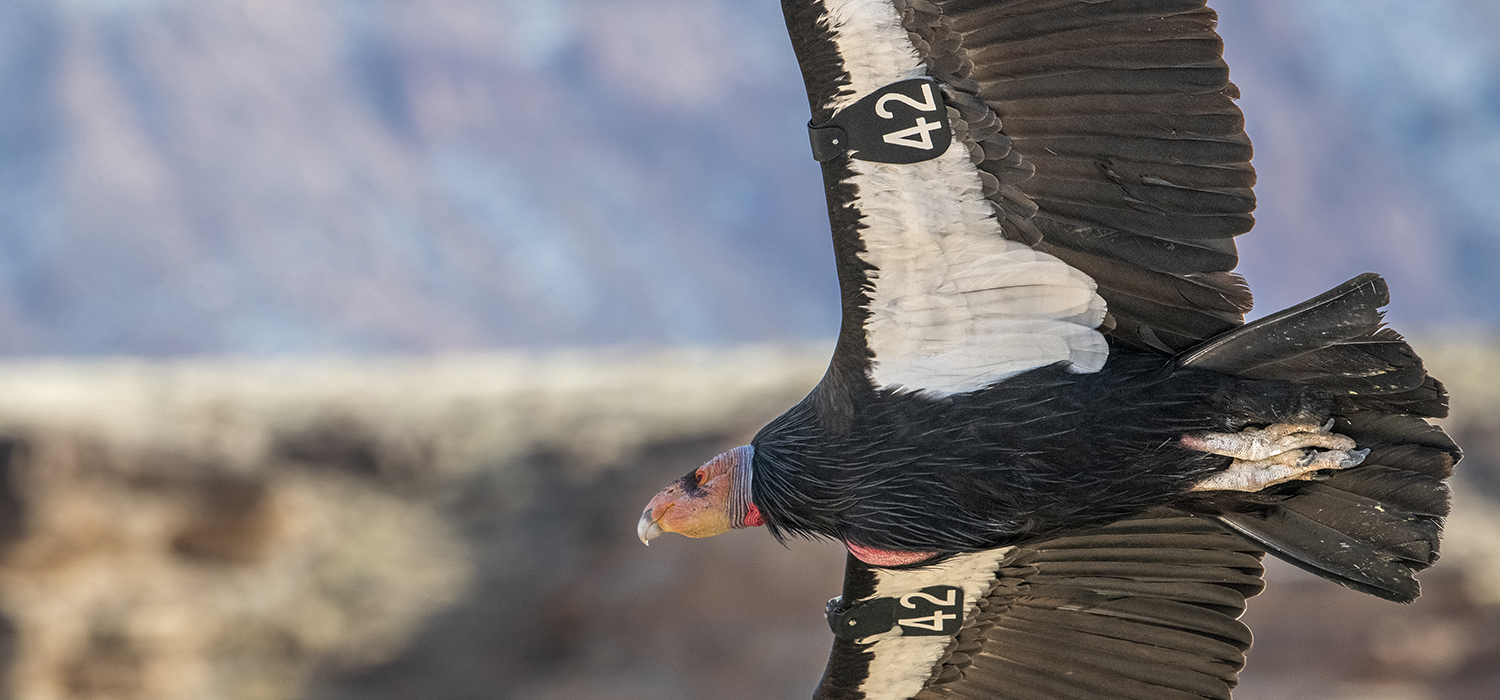
BY CHARISSA MIIJESSEPE-WILSON
My government name is Charissa Miijessepe-Wilson, and my ancestral name is Zii-Bii-Kwe, meaning "River Woman" in Potawatomi. I belong to the Fish Clan. Clans are important to my Potawatomi people because they teach you important life lessons. Fish work in big groups, so they teach you that, to be successful, you must work together. Through my father, I am also Kickapoo, but being from a matrilineal tribe, I identify as Potawatomi.
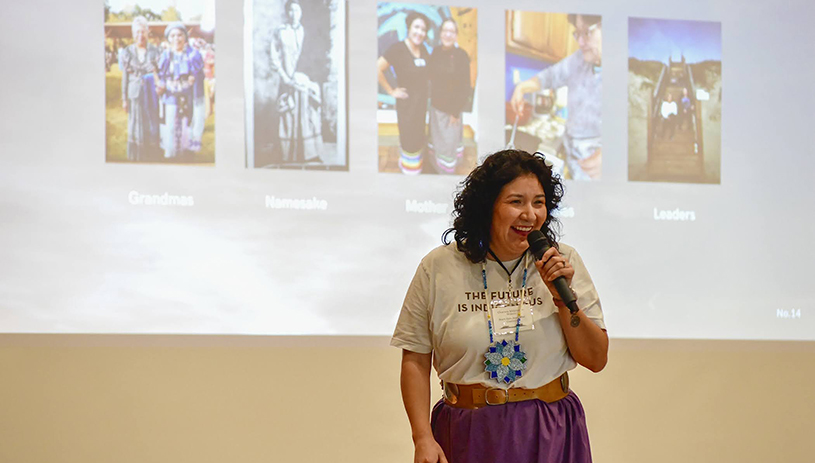
Potawatomi translates to "Keepers of the Fire." Traditionally, we are part of the Council of Three Fires. Of those three fires, Potawatomi are the youngest sibling; our older brothers are the Ojibwe and the Odawa.
Our responsibility as the Potawatomi is to care for fire. We were gifted with the knowledge of how to create fire, how to maintain fire, and how to use fire as medicine. Back on my reservation, there are a lot of ceremonies involving fire and our sacred fireplace. They teach us that fire is our relative. We call it misho, which means "grandfather." Our Ojibwe brother is responsible for carrying on our traditional languages. Our Odawa brother is responsible for our traditional medicines.
Together in our brotherhood, we provide for each other. We each have our role. One of our number one values as Indigenous people is utility. We know our roles. This value underlies many of our worldviews and lifeways.
I think about this value a lot in my work with the Bears Ears Inter-Tribal Coalition, the coalition of five tribes — Hopi, Zuni, Ute Mountain Ute, Diné, and Ute — that proposed Bears Ears National Monument and continue to work to protect it.
I often reflect on the words of my grandfather, Francis "Big Man" Wahwasuck, who used to say, "There will be a time when people will be lost because they don’t know where they come from. And during this time, they’ll look to Indigenous people to lead, to help them remember how to be in this world."
I believe that that time is now as a lot of eyes look to Indigenous people for guidance, wisdom, and leadership. So how do we know where we belong and how to show up in the world as Indigenous people? My own story started, believe it or not, with a dandelion.
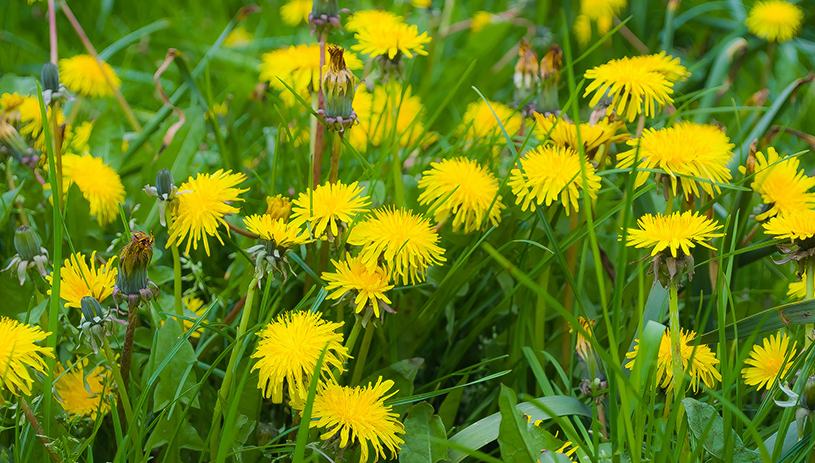
GEORGE HODAN
When I was young, I was playing outside, picking dandelions. When I’d picked a good-sized handful, I gave it to my father.
He looked at me and asked, "Did you give anything for picking these dandelions?"
"No," I said.
"Oh, so you just picked them because you thought they were pretty?" he asked.
"Yes," I answered, confused.
"What you need to understand, Charissa," my father said then, "is that when you did that, you took that dandelion’s life. A dandelion doesn’t have any less value than you do. You need to go back and give an offering. You took a lot of these dandelions and you need to give something in return. All things have a living spirit. And all living things deserve respect. Just because it’s littler than you and it doesn’t have the same purpose as you as a human doesn’t mean that it doesn’t deserve the respect that you deserve as a human."
In Potawatomi we revere plants as relatives, so my dad was teaching me that I needed to respect this dandelion as such. He continued, "The reason that we give offerings when taking the life of other living things is that one day our bodies will return to the earth. Our return to earth is our offering in exchange for consuming all this water, consuming our plant and non-human relatives. All of these things that we take from the earth while we exist, we will give back in energy and spirit and form when we return to the earth. Now, go make that offering. You need to care for things the way they care for us."
We’re equal and we all have something to contribute. We’re all connected. We all have our place.
In this worldview, relationships are everything. For Indigenous people, that means relationships with community, with people, with your body, with food, with our non-human relatives, with land. Land is one of our most important relationships because how we treat land reflects how we treat ourselves, other people, and our non-human relatives. Western society devalues things that aren’t human. Even in conservation, they are seen as "resources." But relatives aren’t resources.
The land knows how to take care of itself. It’s regarded as one of the wisest beings with many things to teach. This is true at Bears Ears. Nature is already in balance and our role as human beings is to help maintain that balance. When we visit Bears Ears, our responsibility is to listen and reflect. What does this land know? What is this land teaching us? We need to be observant. We need to give back because we take a lot from this earth. Ultimately what the land teaches us is that everything returns back to it.
What does this reflection tell me despite not being a member of any of the Bears Ears Inter-Tribal Coalition tribes? Ancestral wisdom doesn’t recognize colonial borders. It transcends Western space and time. We hear that we’re losing our traditional ways, but ancestral knowledge is in our blood. We look at our surroundings and we already know these things. We just need to remember them. Our ancestral wisdom is still here. We need to reconnect, heal, and remember.
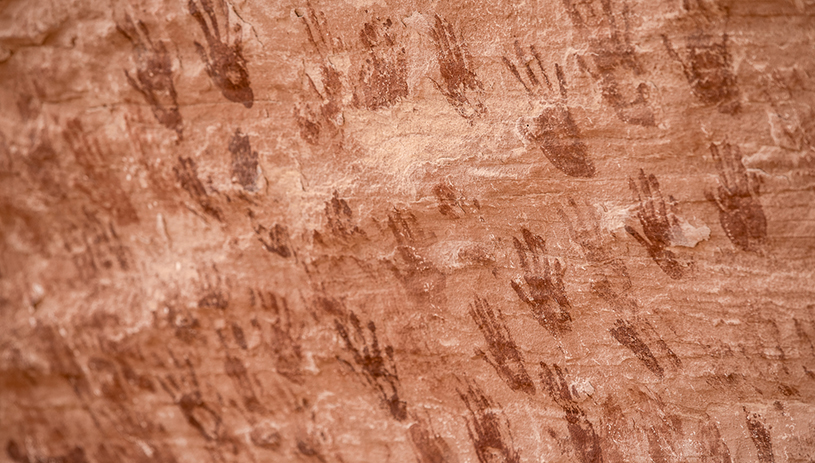
I’m a guest at Bears Ears. As such, when I come to this landscape, that means there are protocols to follow. I need to introduce myself to it. I need to speak my language because even though I’m not from one of the tribes that have an ancestral connection to Bears Ears, when I speak my language, the spirits, the ancestors, they know that I’m Anishinaabe, Indigenous. They know me and they know that I know how to treat the land and how to be respectful.
I’ve learned so much from the coalition tribes. I observe how they interact with the land at Bears Ears to see how I should interact. From this, I’ve learned to be humble. When you’re a guest, you will make mistakes. Don’t be afraid of that.
When you make a mistake, you say, "I’m sorry. How can I do better?" Or, "I’ll do it differently next time. I’m listening, I’m learning."
Being a good guest means leaving things better than you found them. That’s our responsibility. The lands lead us, they teach us.
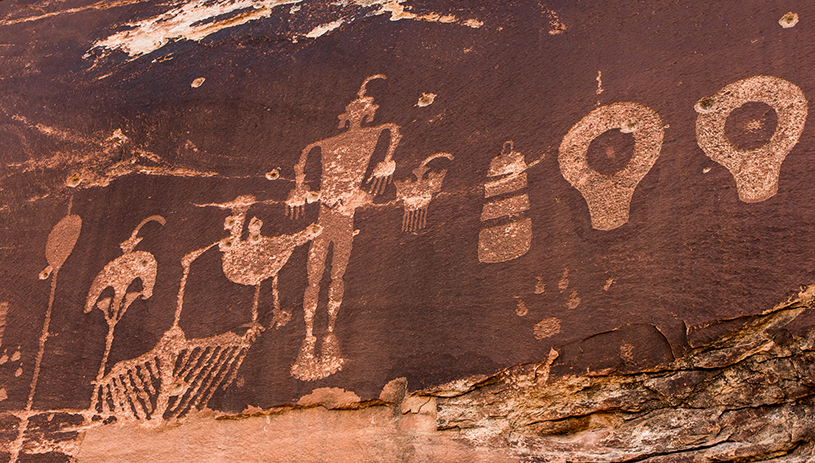
What is Bears Ears telling us? A lot. It’s a very wise landscape. Bears Ears teaches us the sacredness of the land. There’s a lot of hurt, not only at Bears Ears, but around the greater community. Part of what we’re doing is trying to heal all that.
Most tribes in the United States were removed from their ancestral homelands. To heal, we must restore our connections because we were illegally removed from our homelands, lands that remain our home with or without our physical presence. Healing is prevalent in our work.
One of the most beautiful things I get to experience working for the coalition is seeing the five coalition tribes work together and support each other. At one of my first tribal leader meetings six years ago, two tribes — you can probably guess which ones — who had been in conflict a long time were bickering. Finally, one leader said, "Well, we’ve been here all day and we’ve aired what we needed to air. Now I’m going to put everything aside and listen to my brother because we’re here to protect Bears Ears." Bears Ears heals. It really does.
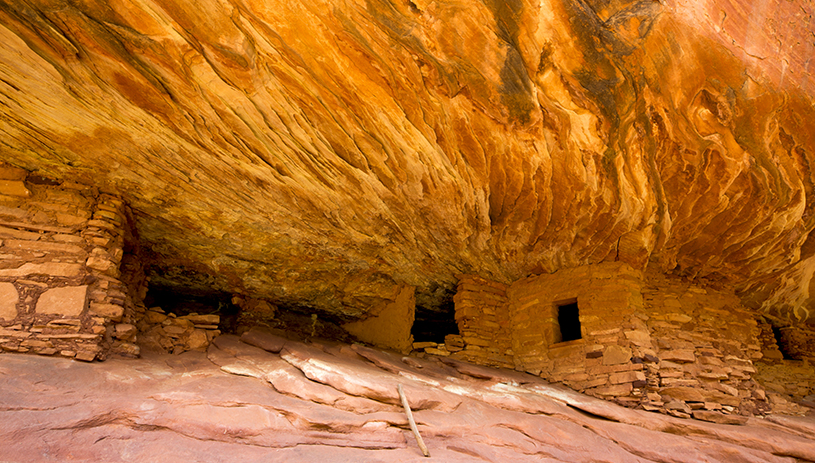
To continue healing we must ask, "What do we want for our future ancestors?" Everything we’re doing now is not for us. It’s for people who aren’t even born yet. We’re always thinking seven generations ahead. We need to focus on what Earth needs to heal.
One of the coalition’s values is abundance. Colonial systems teach us to act out of scarcity. There’s a limited amount of pie. Tribes get slivers of that pie from the federal government. This has taught us that we have to fight with other tribes over those scarce resources. We still operate like that sometimes because we have to. But what if we adopted a mentality of abundance instead of scarcity? What could we do together? What could we do for this place? We know that we likely aren’t going to get everything we want with respect to the Bears Ears landscape. We have to be able to bounce back, to say, "Okay, that didn’t work. How are we going to pivot?"
To support this idea of abundance, this culture of trying, of pushing the envelope, of innovation, we must be curious. In colonial systems, we are taught, "There are certain ways to do things. You can only do things this way." Indigenous people, if you remember, we’re very utilitarian. There are a lot of ways to do things. We must remain open and abundant.
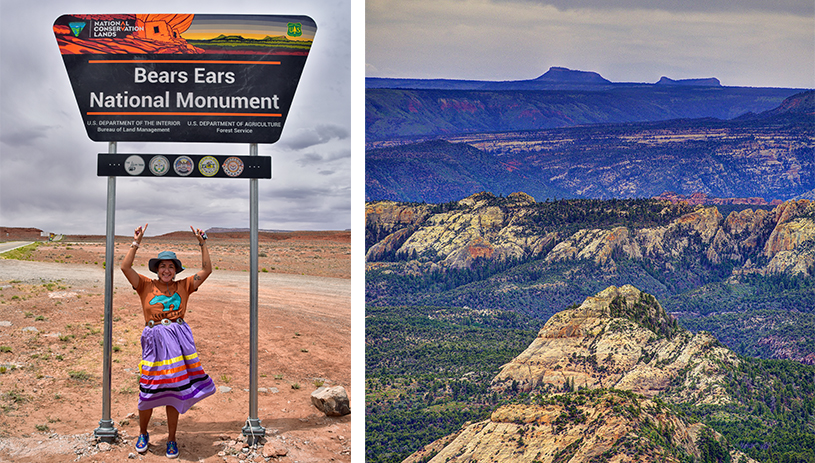
The author at the Bears Ears National Monument sign unveiling, and the Bears Ears buttes. PHOTOS BY TIM PETERSON
How does this all tie into Bears Ears? I don’t come from a conservation background. Our federal agency partners will sometimes speak in really technical terms and I have to ask, "What does that mean?" Then I hear the explanation and I think, "Oh, well, I do that back home all the time."
My point is that Indigenous people, we already have a lot of this knowledge. We’ve been here for a long time.
What conservation means to me is we need to listen. We need to remember how to care for the land. We need to reconnect. A lot of us have been ripped from our homelands, and we’re losing our cultural practices. We need to take the time to reconnect. We need to relearn.
So how do I show up in the conservation space? It sounds cheesy, but I operate as an "aspiring ancestor." How are my actions contributing to ancestors who aren’t born yet?
When we think about our actions, we have this belief in Indigenous culture of "transference." That’s what Western society calls it. It relates to the energy and the words that we put into things. There was a study done on water. Water that they spoke to with good words, when it froze, developed beautiful crystalline structures. Water into which they put bad intentions, bad words, froze into irregular structures. It revealed that what you do and how you speak matters. It has a physical effect on the world.
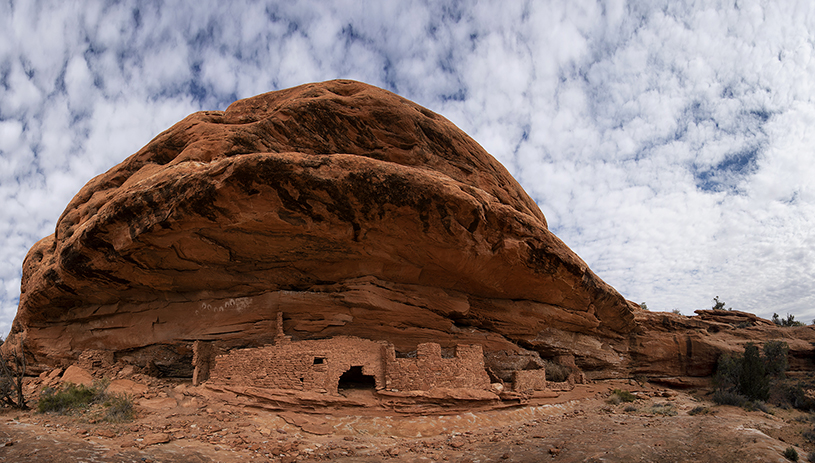
I have learned from the Bears Ears tribes that this entire landscape is sacred. I can’t be in a bad heart or a bad mind when I approach this place. If hard things are happening in my life, I have to resolve them before I come to Bears Ears because transference happens.
This tells us our intentions matter. We’re trying to do things differently here at Bears Ears. One of the biggest issues is generational sustainability, uplifting our youth as future leaders and uplifting our elders. I can’t wait until I’m an elder because in my culture, elders are revered. They walk into a room and you ask, "What do you need? You need some coffee? You need me to go run and get you some cookies?" And when an elder speaks, people listen. They have a lot of wisdom to share. Our elders need to be involved; they are our knowledge keepers.
At Bears Ears, we’re pushing for a lot of things that haven’t been done before. Sometimes we’re getting pushback and that’s okay. That’s been our experience with colonial systems. We’ve always had to fight and we know that we’re going to have to fight into the future for Bears Ears.
I want to leave you with something I learned from an elder, Gene Tagaban. "There will be a time in your life when you will be called to lead," he said. "You won’t feel ready. You won’t feel worthy. You won’t feel like you have the right knowledge. But despite all of that, you will still step up to lead because that’s what your people require of you."
I’d never thought of myself as a leader. I’m soft-spoken, but at Bears Ears right now, I’m being asked to lead. I don’t feel ready. I have to remember that Creator knows that even when I make mistakes my heart is in the right place. To all my relatives, I want to say, Bears Ears needs you to step up and lead, whether you’re ready, whether you feel like you’re the right person, or not. That’s what this movement is going to require.
Charissa Miijessepe-Wilson serves as codirector of the Bears Ears Inter-Tribal Coalition.
EDITOR'S NOTE: The views expressed by Advocate contributors are solely their own and do not necessarily represent the views of the Grand Canyon Trust.
